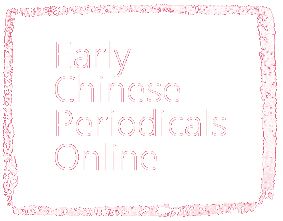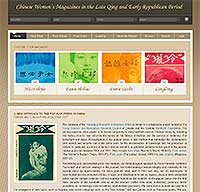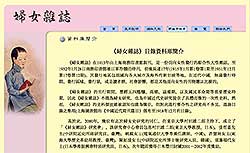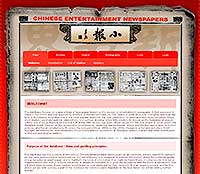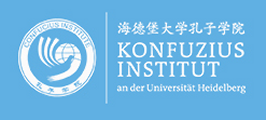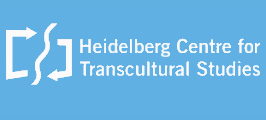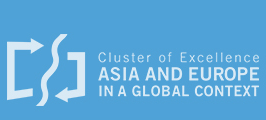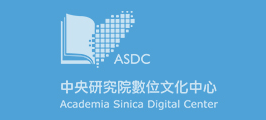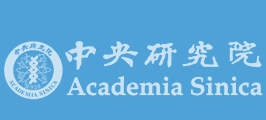Early Chinese Periodicals Online (ECPO)
ECPO joins together several important digital collections of the early Chinese press and puts them into a single overarching framework. So far, the ECPO project has focused on a body of rich but heretofore undervalued materials—women’s and entertainment magazines. Currently, we are adding to these a selection of literary and art magazines, in cooperation with a new partner, the University of Washington.
The first building block are several databases on early women’s periodicals and entertainment publishing: “Chinese Women’s Magazines in the Late Qing and Early Republican Period” (WoMag), “Chinese Entertainment Newspapers” (Xiaobao 小報), and various databases hosted through the Academia Sinica in Taiwan.
WoMag (https://uni-heidelberg.de/womag/) is a richly-tagged database of the contents of four influential women’s magazines published between 1904 and 1937, including scanned copies and additional high-level scans of images and fukan/insert materials. This database is the model for what we have called the intensive approach within our database structure. The building of WoMag accompanied a collaborative project funded by the Canadian SSHRC and the German Humboldt-Foundation (TransCoop-Program), entitled A New Approach to the Popular Press in China: Gender and Cultural Production, 1904-1937. It was initiated by Joan Judge and Barbara Mittler in collaboration with Michel Hockx, Julia Andrews and Grace Fong.
The second database, Xiaobao (http://xiaobao.uni-hd.de) was created by Catherine Yeh and has been supported since 2007 by the Cluster of Excellence Asia and Europe in a Global Context at Heidelberg University. Xiaobao provides basic publication data and an overview of the contents of some 22 entertainment newspapers (xiaobao) from the late Qing and Republican periods. It approaches these materials as an important primary source for research on cultural and social history. This database is the model for what we have called the extensive approach in our database structure.
The Academia Sinica, and in particular its Institute of Modern History, have in recent years digitized large parts of their collections. In particular, Yu Chienming and Lien Lingling have been involved in the digitization of some two hundred women’s journals and a small selection of xiaobao. The Institute of Modern History has also built a database for one of the most long-lived women’s magazines, the Funü zazhi 《婦女雜誌》目錄資料庫 (http://mhdb.mh.sinica.edu.tw/fnzz/). All of these also follow the model for what we call the extensive approach.
ECPO is distinguished from other existing databases of Chinese periodicals in that it not only provides image scans, but also preserves materials often excluded in reprint, microfilm or digital (even fulltext) editions, such as advertising inserts and illustrations. In addition, it aims at incorporating metadata in both English and Chinese, including keywords and biographical information on editors, authors and individuals represented in illustrations and advertisements in the journals.
ECPO now sets out to join the materials from the above databases into a single overarching framework. This second step is ongoing and has been supported by a grant from the Chiang Ching-kuo Foundation (2012-2015). Eventually, ECPO will make these materials accessible through a single search interface. By framing the journals with this body of metadata, ECPO enables researchers to establish interconnections between, for example, given individuals, topics or illustrations, and to chart their relationships within particular issues of periodicals, over the entire run of a particular periodical, and across different periodicals. Using ECPO, the researcher will be able to nuance, challenge, and potentially refute existing narratives of history and cultural change.
The project is intended as a prototype. The database template allows for the integration of additional material. It is our hope that other scholars working on and with early Chinese periodicals will employ the database and continue to enrich and expand it by adding their materials and the particular periodicals central to their own research. We would hope that eventually, the database’s benefits are not restricted to the field of Chinese studies. The project’s commitment to open access and to fully bilingual metadata ensure that ECPO’s resources will be available to scholars in other fields. We are convinced that, ultimately, the field of Chinese studies itself will benefit from this opening of disciplinary boundaries and consequent de-marginalization. By framing a restricted range of journals within a sophisticated body of metadata, the database permits scholars to test different approaches to studying early 20th century media, opening new horizons in studies of literary and social history as well as in media studies more generally.
We are looking for contributors to the database: if you have a related research project or available materials that you would like to include within the framework of ECPO, please contact us!

